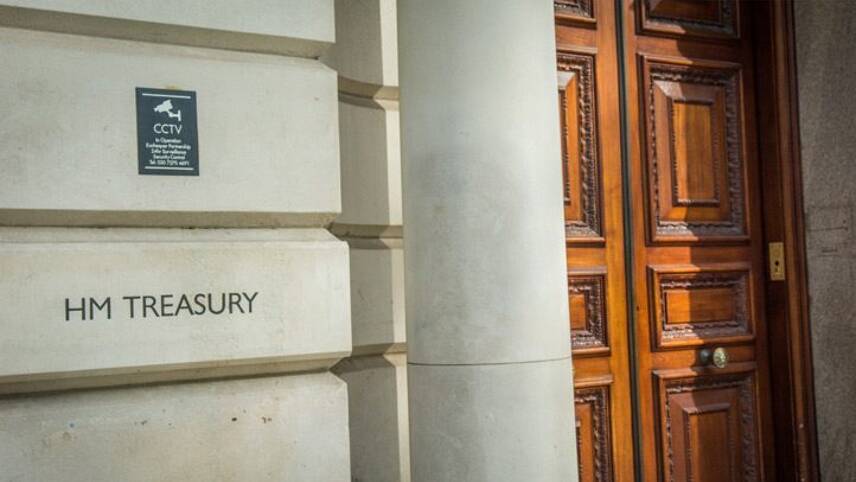Register for free and continue reading
Join our growing army of changemakers and get unlimited access to our premium content

Sunak's speech has been long-awaited
In a statement published this evening (6 July), the Treasury revealed that Sunak’s Summer Economic Update, due to be given on Wednesday (8 July), will ring-fence more than £3bn for environmental initiatives.
The largest single project within the portfolio will be a £1bn commitment to decarbonising public sector buildings, like schools and hospitals, as well as social housing, through retrofitting. Sunak will say that this funding will not only create jobs in the short-term and save public sector bodies’ costs, but spur progress towards net-zero and better the UK’s “future prosperity”.
A further £50m will be used to trial early-stage technologies, such as heat pumps, in the social rented homes considered England’s least energy-efficient. Families could see their annual energy bills fall by an average of £200 with this support, the Treasury claims.
Elsewhere, the package will contain multi-million-pound schemes centred around reskilling and nature.
For example, a £40m Green Jobs Challenge fund will be created to help local authorities and environmental charities create nature conservation and restoration programmes. Up to 5,000 jobs could be created in this way, predominantly in England.
UPDATE: Sunak has now delivered the Summer Economic Update in full. You can read our coverage here.
Early reaction
The £3bn pot is in addition to Boris Johnson’s initial £5bn plan, unveiled last week at a briefing in the Midlands.
Key green economy figures welcomed Johnson’s commitments on digital infrastructure and on accelerating the publication of the National Infrastructure Strategy – a policy package which will provide long-term certainty for key decision-makers in the built environment, energy and transport sectors. But the package was ultimately not aligned with net-zero or with the scale of the biodiversity crisis, it was agreed.
Early reactions to Sunak’s additional measures broadly welcome the Treasury’s decision to ring-fence billions for green initiatives, and to prioritise energy efficiency. Recent research from McKinsey concluded that for every $10m (£8m) invested by a Government in energy efficiency, 77 jobs could be created. In comparison, funnelling $10m into fossil fuels would create just 27 jobs.
However, several organisations and individuals believe that the commitments still fall short of what is necessary to meet both the scale of the climate and nature crises, and commitments already outlined by Ministers. On energy efficiency, for example, the Conservative Party’s manifesto for the 2019 General Election promised £9.2bn for retrofitting and innovation over this Parliament.
The ECIU’s head of analysis Jonathan Marshall said there is a risk that Ministers are “rowing back on manifesto commitments to take action on the UK’s leaky homes”.
“Report after report has highlighted the fact that a housing retrofit scheme could deliver hundreds of thousands of good jobs up and down the country, starting literally within weeks of being given a green light,” Marshall said. “If Mr Johnson’s government does not accept that evidence now, with thousands facing the threat of unemployment and many more paying higher energy bills than they would in better-insulated homes, some will inevitably question their commitment to that manifesto pledge.”
Marshall did add that the package is “not the end of the matter”, given that further Treasury announcements are due in the Autumn and that further policy changes are likely ahead of COP26.
Similarly, the Aldersgate Group’s executive director Nick Molho said: “It is important that this week’s announcements be only a first step ahead of a more meaningful package and set of measures to be announced at the forthcoming Autumn Budget.
“Beyond the need to commit public investment to support shovel-ready projects and early-stage innovation trials, it is critical that the government puts forward a comprehensive policy plan in the autumn to drive private sector investment towards the low carbon and environmentally resilient infrastructure needed to put the UK on track for its net-zero and nature restoration targets.”
The Aldersgate Group’s own policy briefing on the UK’s Covid-19 recovery package calls for, among other things, a higher carbon price and longer-term certainty on emissions trading; regulations incentivising business investment in low-carbon technologies and resource-efficient products; and mandatory climate risk reporting for corporates.
Sarah George


As I have said before Heat Pumps without proper insulation are pointless so don’t think retrofitting these into social rental properties (or even private rental properties) will save the occupants any money. Experience from colleagues who live in such a property and had an ASHP fitted are the house is damp and it costs 3x as much to heat. The local Housing Association ticked a box but didn’t improve the insulation at all.
Don’t let this opportunity go to waste by failing to make whole scale improvements across the board and without properly managing the technologies and installations. All installers and suppliers MUST be properly screened and Quality Controlled (preferably to an ISO standard) to ensure the householder and taxpayer are not ripped off by cowboys.